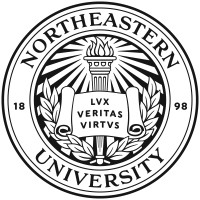
Northeastern University
Founded in 1898, Northeastern is a global research university with a distinctive, experience-driven approach to education and discovery. The university is a leader in experiential learning, powered by the world’s most far-reaching cooperative education program. We integrate classroom study with opportunities for professional work, research, service, and global learning in more than 100 countries. The same spirit of collaboration guides a use-inspired research enterprise focused on solving global challenges in health, security, and sustainability. Northeastern offers a comprehensive array of undergraduate and graduate programs leading to degrees through the doctorate in nine colleges and schools, and select graduate programs at campuses in Boston, Charlotte, N.C., San Francisco Bay Area, Seattle, and Toronto. Campuses in Burlington, MA, and Nahant, MA, are home to research institutes for homeland security and coastal sustainability, respectively.






